#GmcSierra
GM to Stop Sales of Silverado and Sierra for Roof Splitting Issue
General Motors is one of the largest pickup truck manufacturers in the world, with its Chevrolet Silverado and GMC Sierra two of its more popular models. While the most recent iterations of the two full-size pickups are more refined and tech-forward than previous generations, the 2024 models appear to also have a problem with their roofs splitting.
Rare Rides: The 2003 GMC Yukon 2500 XL, a Quadrasteer Experience
Today’s Rare Ride coverage was prompted when your author saw an unusual pickup truck on the roads of Cincinnati. The truck in question was a black Sierra Denali from the early 2000s, with a telltale feature on its rear fenders: little lights on either side. Let’s talk Quadrasteer.
Super Cruise While Towing on Way to GM Trucks
As part of an announcement that the 2022 GMC Sierra would receive GM’s Super Cruise “hands-free driving-assistance” system (GM’s phrasing, not ours), GM confirmed that the system will work while towing and trailering.
Chip Shortage: GM to Remove Stop-Start Tech From Trucks
Despite hearing murmurings that the semiconductor shortage is about to turn a corner, General Motors has recently decided to begin manufacturing full-size pickups without the sometimes obnoxious automatic stop-start feature (intended to improve fuel economy) as a way to cut back on chip usage.
While this saves many the trouble of having to manually deactivate the system each time they return to the vehicle, some will undoubtedly miss having it. Those traversing the countryside or racking up highway miles during their daily commute have little to gain from the feature. But testing has revealed that city dwellers constantly exposed to stop-and-go traffic actually have an excellent shot at lowering their fuel bill. The vehicles GM has selected can do without start-stop technologies reflects this, though the compensation it’s offering remains laughable.
GM Recalling Nearly 6 Million Vehicles Over Eternal Takata Scandal
As sure as the sun rises in the morning, we can always count on the Takata airbag recall adding new vehicles to its ranks. General Motors is poised to add another 5.9 million vehicles to the list after the National Highway Traffic Safety Administration issued an announcement on Monday.
Regulators stated that the automaker will be obligated to recall SUVs and pickup trucks (GMT900 vehicles) manufactured between 2007 and 2014 because the installed airbag inflators suffer from the classic Takata trait of being extremely dangerous. While the defect itself is relatively rare, the number of vehicles involved is staggering. Around 100 million inflators have been recalled by 19 major automakers around the world, and the resulting failure is often devastating. Units, especially those exposed to high levels of heat and humidity, can rupture ― causing an explosion that sprays metal fragments all over the cabin. There have been 18 known fatalities relating to the issue in the United States alone.
Help Is on the Way for GM's Full-size Trucks
No, General Motors hasn’t tapped an army of virus-resistant robot workers from Boston Dynamics to build its bread-and-butter models; rather, the pickups themselves will undergo changes to boost appeal amid potent competition from Detroit rivals.
Sometime next year, The General’s full-sizers will reportedly correct a mistake that held the duo back upon their debut.
The Call Up: GM's Truck Plants Are 'All Hands on Deck'
According to a report in the Detroit Free Press, General Motors’ truck plants now resemble Tesla plants on the eve of the end of a fiscal quarter.
The need to crank out as many pickups as possible — essential for replenishing a depleted inventory while boosting flagging sales figures — has apparently brought both management and laid-off workers to the assembly line.
Report: U.S. Ramp-up of GM Pickups Paused As Parts Prove Precious
While General Motors earned the right to resume production in Mexico on Thursday, parts procurement in the gradually reopening North American economy remains a serious roadblock.
U.S. plants came online May 18th following two months of pandemic-prompted downtime. Of topmost importance to all members of the Detroit Three are their hot-selling pickup lines, though UAW- and state-approved health protocol calls for a slow ramp-up, with all plants operating on reduced shifts. Parts supply will dictate those ramp-ups; in GM’s case, boosted pickup production in the Midwest will have to wait.
Poised for Pickups: Mexican Restart Can't Come Soon Enough for GM
Production at General Motors’ Mexican assembly plants could start up next week, following a go-ahead from the country’s leadership to resume factory activity. The faster GM’s able to come back online south of the Rio Grande, the better.
In an earnings briefing last week, GM, like its rival Fiat Chrysler, pointed to a declining inventory of lucrative pickups — a segment that proved extremely resilient over the past two months, even during the depths of the coronavirus lockdown. With U.S. plants resuming work on Monday, a concurrent Mexican restart is what the company needs.
GM's Software Recall Just Causing More Brake Problems
General Motors is recalling around 128,500 vehicles in the United States over a previous fix that didn’t work as intended. The cars stem from a larger December callback that aimed, via a software flash, to mitigate braking problems on about 550,000 Chevrolet Silverado 1500, Cadillac CT6, and GMC Sierra 1500 models from 2019. GM says the solution created issues on about a third of them.
The problems are much the same as before. Affected vehicles may have serious braking issues and have their anti-lock braking system (ABS) and electronic stability control (ESC) fail. At least this time the computer will know enough to indicate a problem via the vehicle’s warning lights. In the previous recall, GM said the vehicles’ diagnostic system would not illuminate the instrument cluster to hint that something was amiss.
Is CarbonPro Everything GMC Claims?
With General Motors razzing Ford back in 2015 for optioning an aluminum truck bed to save weight, thus improving fuel economy, it couldn’t pull off a similar move without a sea of mouths wailing warnings of hypocrisy. GM has been playing catch-up with the Blue Oval’s full-size pickup since forever, always framing the GMC Sierra and Chevrolet Silverado as the more robust choice. The company even launched an advertising campaign to prove its steel truck bed was the tougher option.
When the General’s full-sized trucks underwent a weight-loss program of their own, it was decided anything that opened or closed should be aluminum while the bed absolutely had to stay high-strength steel. Otherwise, it would be guilty of the same mistakes it accused Ford of. Despite throwing shade at Ford’s claimed lack of sturdiness for over a decade, the aluminum-sucks angle has been reeled back immensely over the last couple of years. GM even attempted to wipe all evidence of a comparative rock-drop test from the internet, possibly because it’s finally decided to embrace aluminum itself.
However, there’s already an alternative to the high-strength steel GM currently offers — the CarbonPro bed available on the GMC Sierra Denali and AT4 — and the manufacturer has prepared another stunt show to test its mettle.
Full-size Truck War Update: Ram Fills Ford's Rear-view in 2019
With full-year sales stats now available from each of the Detroit Three, we can see how the leaders in the critically important full-size pickup segment faired in the eventful year of 2019.
And it was an eventful year, what with new full-sizers on offer from Ram, Chevrolet, and GMC, and revamped Heavy Dutys from both Ram and GM entering the fray. (GM’s big guys landed for the 2020 model year, with Ford’s redesigned 2020 Super Duty series arriving shortly after the launch of its Detroit rival.)
It’s no secret that Ram did well last year, but how did it stack up next to the perennial front-runner?
GM Recalls More Than 900,000 Vehicles Worldwide Over Brake and Battery Issues
General Motors is recalling more than 900,000 vehicles across the globe to addresses issues from separate campaigns — one of which poses an always-exciting fire risk. On Thursday, the automaker announced a callback of more than 400,00 Chevrolet Silverado and GMC Sierra 1500 trucks from the 2019-2020 model years. The manufacturer is concerned that pickups’ battery positive cable rings may have been installed with excessive glue, creating a stalling risk, or in some instances a potential fire hazard.
Another 550,000 Chevrolet Silverado 1500, Cadillac CT6, and GMC Sierra 1500 models from 2019 will also need to be recalled. A potential software issue related to the vehicles’ service brake system notifications could cause it to go haywire, negatively impacting their electronic stability control (ESC) and anti-lock braking (ABS) functions.
Canada's Oldest Auto Plant Runs Out of Vehicles
Canada had just turned 40 and Teddy Roosevelt was running a zoo out of the White House when the first automobiles rolled out of Oshawa, Ontario.
Starting in 1907, Oshawa built vehicles of the McLaughlin Motor Car Company, with the cars carrying Buick drivetrains shipped in from Flint, Michigan. An early alliance! Thank the close friendship between Sam McLaughlin and William Durant for that partnership. The Chevrolet brand set up shop at the lakeside assembly plant not long thereafter, and in 1918 General Motors of Canada Limited was formed from McLaughlin and Chevrolet Canada.
Fast-forward 101 years, and the last GM vehicle has left the factory. Workers put the finishing touches on the final vehicle today.
Glitzier EVs Bound for Detroit-Hamtramck?
The past 24 hours has been all about electric propulsion and domestic nameplates, and this tidbit is right up the same street.
Hot on the heels of General Motors’ ratified UAW contract, in which the automaker pledges to keep its once-endangered Detroit-Hamtramck assembly plant open, an automotive forecaster claims there’s more product headed to that facility than initially thought.



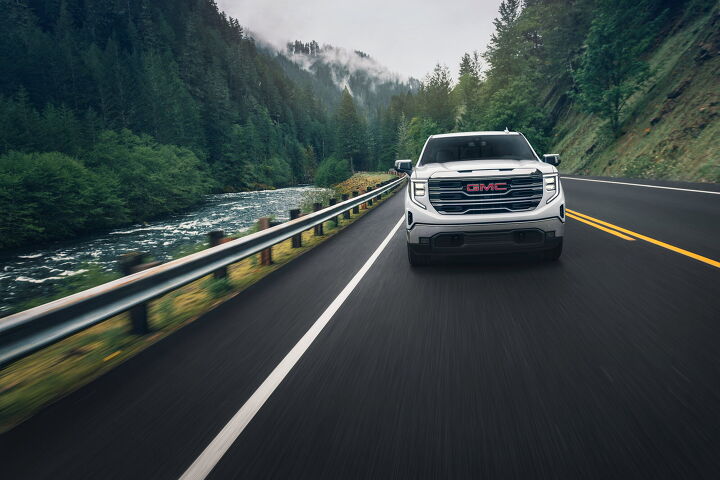
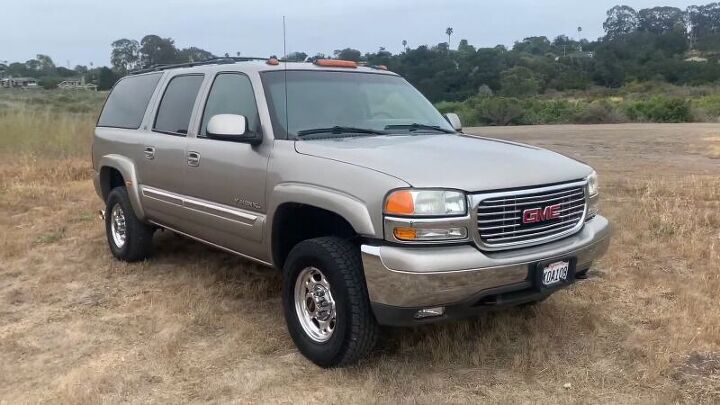

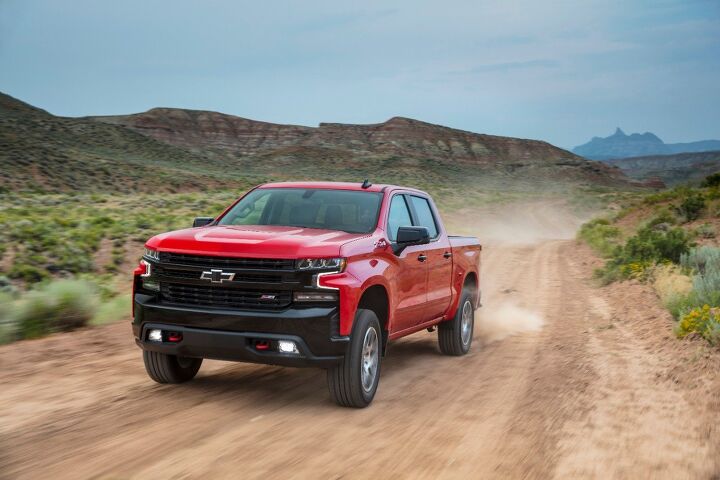

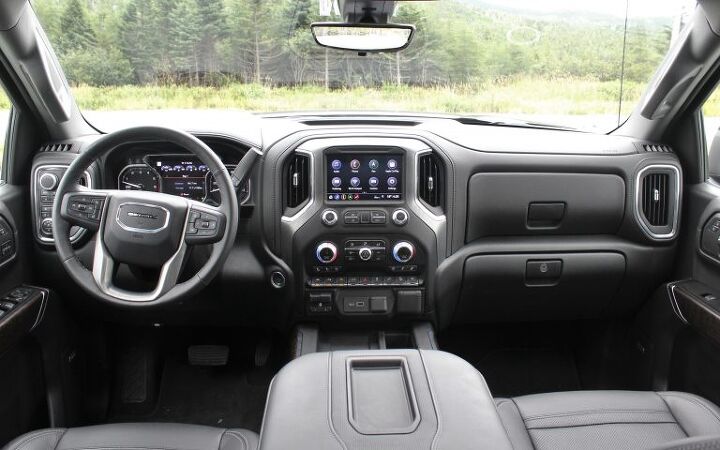
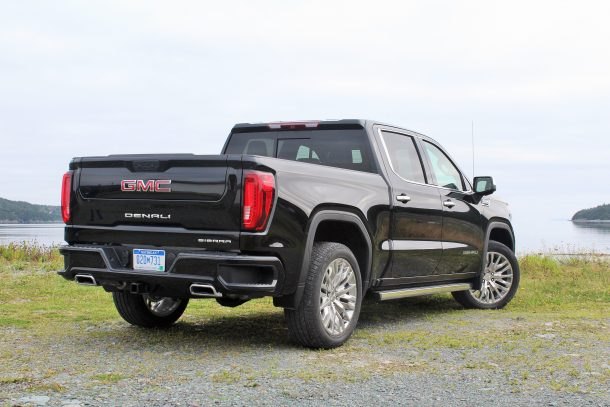
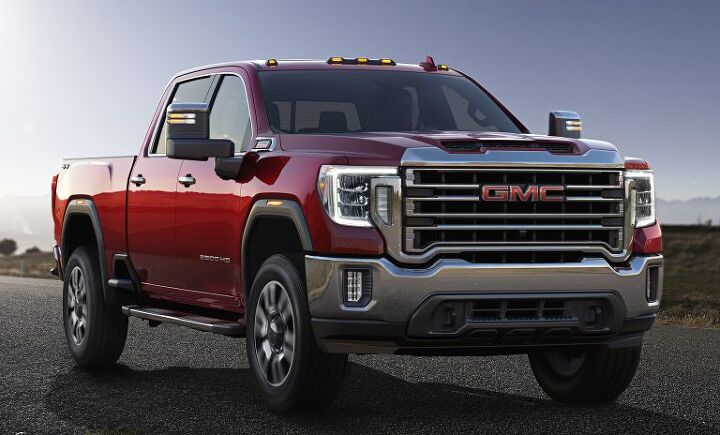

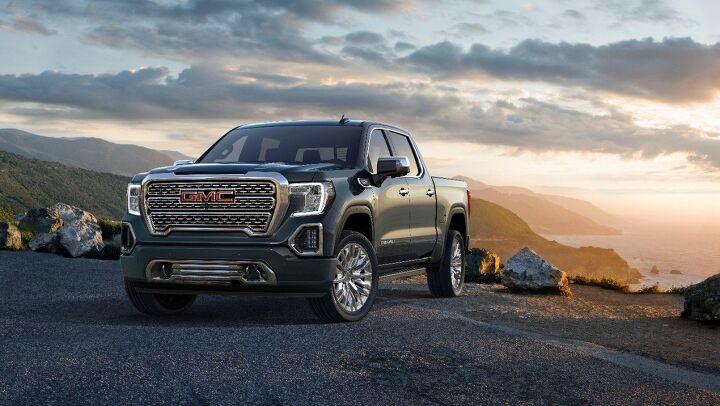
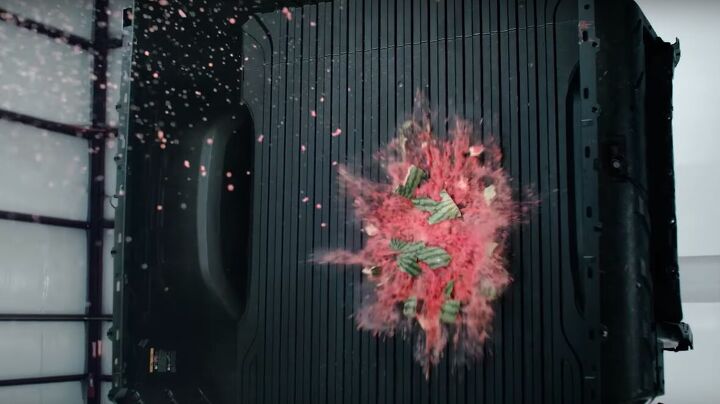
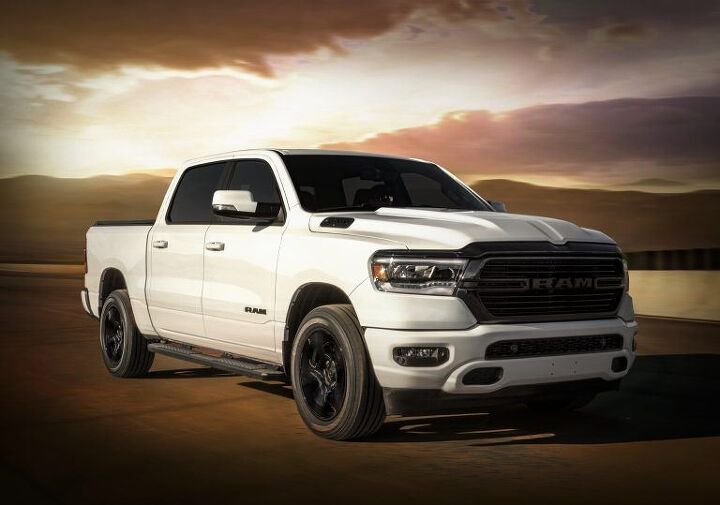
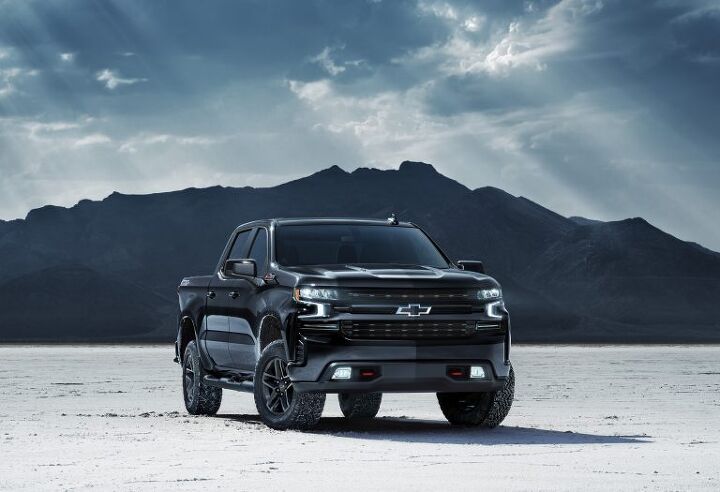
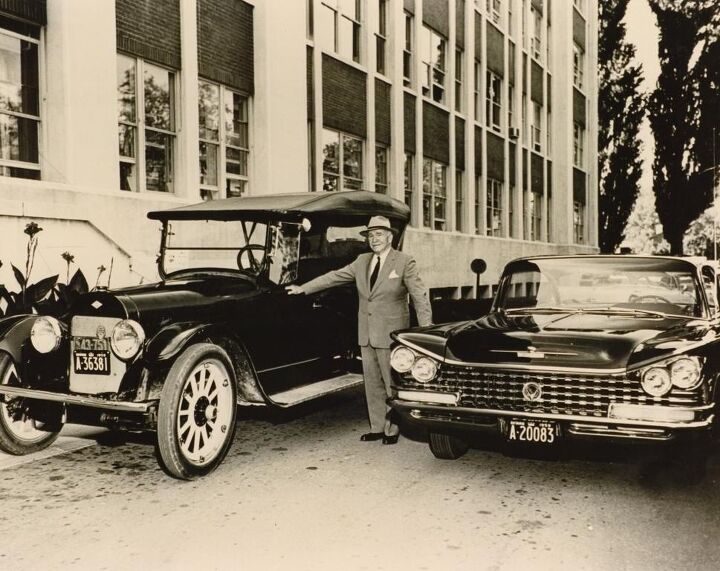













Recent Comments